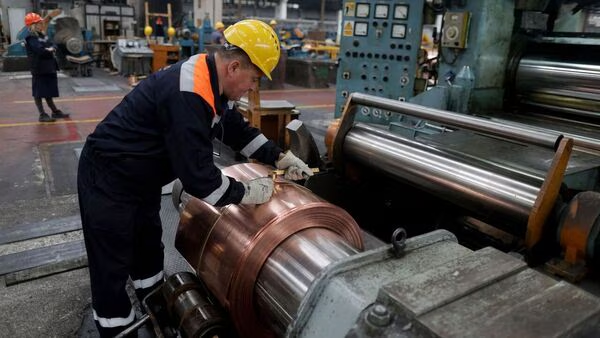The implementation of new quality control norms for refined copper has raised alarms in India’s copper industry, which relies heavily on imports for 30-40% of its needs. With Japanese suppliers awaiting certification, the sector anticipates a three-month supply crunch impacting industries reliant on copper.
New Quality Norms Spark Copper Supply Crisis in India
Introduction
India’s copper industry faces a looming crisis with the enforcement of the Quality Control Order (QCO) on December 1, 2024. The downstream industry is warning of significant supply shortages as 80% of imported copper—primarily from Japan—remains uncertified under the new norms.
Dependence on Imported Copper
High Import Reliance: India imports 30-40% of its refined copper needs.
Key Source: In 2023-24, imports from Japan were valued at ₹16,500 crore.
Essential Material: Copper is critical for manufacturing wires, cables, and other industrial applications.
Impact of the Quality Control Order
Delayed Certifications: Major suppliers like Japan are awaiting certification under the new norms.
Supply Chain Disruptions: Industry stakeholders foresee a supply crunch lasting three months.
Production Halts: Key sectors dependent on copper may experience slowdowns or stoppages.
Domestic Production Challenges
India’s domestic copper production cannot meet current demand, leaving a gap exacerbated by import restrictions.
Production Deficit: Local production accounts for less than 70% of demand.
Scaling Challenges: Expanding capacity requires significant time and investment.
Industry Concerns and Pleas
The downstream industry has raised urgent concerns with the government.
Supply Disruptions: Industries such as electrical equipment manufacturing could face raw material shortages.
Cost Implications: Reduced supply may lead to price hikes, impacting both industries and consumers.
Suggestions for Relief: Stakeholders propose temporary exemptions for certified suppliers and expedited approval processes.
Potential Ripple Effects
A prolonged copper shortage could disrupt multiple industries, including:
Electrical Wires and Cables: Delays in production and increased costs.
Infrastructure Projects: Interruptions in large-scale construction and energy projects.
Consumer Electronics: Price increases due to raw material scarcity.
Path Forward for the Government
To mitigate the crisis, the government must take proactive measures, including:
Expediting Certifications: Fast-tracking the approval process for Japanese suppliers.
Diversifying Sources: Exploring imports from other nations to reduce dependency on Japan.
Boosting Domestic Output: Incentivizing domestic production to ensure long-term stability.
India’s copper industry is at a critical juncture as new quality norms disrupt supply chains. While the QCO ensures improved standards, its abrupt implementation could lead to shortages affecting vital industries. Collaborative efforts are essential to address immediate challenges and secure a sustainable supply of copper.


Leave a Reply